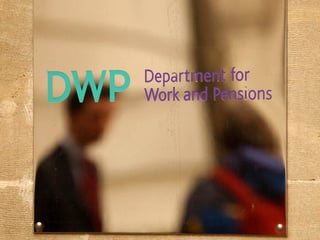Labour win non-binding Universal Credit vote, but UK Government unmoved


MPs tonight voted on an opposition day motion from the Labour party, opposing plans to cut the temporary £20-a-week uplift to Universal Credit.
Mr Johnson had ordered his MPs to abstain on the vote, accusing Labour of trying to politicise the issue of increasing payment for the poorest.
Advertisement
Hide AdAdvertisement
Hide AdLabour won the vote 278 to zero and were supported by six Tory rebels, including Jason McCartney, Robert Halfon and Stephen Crabbe.
With the vote non-binding, nothing has changed on the policy, but the result will still raise difficult questions for the PM.
Opening the debate, Labour’s shadow work and pensions secretary Jonathan Reynolds insisted the issue was about people, not point scoring.
He said: “I am not here today to claim that Conservative MPs are heartless or lack compassion, or somehow they have insufficient regard for the poorest people in this country.
“I want to say if the Government is seriously thinking about economic recovery, cutting Universal Credit is like pulling the rug from under the economy’s feet.
“This £20 a week, it is not a saving for families, it is spent – it is spent in shops and businesses around the country, stimulating the economy.
“Too often this Prime Minister seems unwilling to abide by democratic norms and to accept proper scrutiny and accountability, and we’ve seen in the US where that can end.”
On Sunday Mr Reynolds had warned the proposed cut would see almost 400,000 Scottish families lose £1,000 a year.
Advertisement
Hide AdAdvertisement
Hide AdMr Johnson earlier accused Labour supporters of using the Universal Credit issue to incite hatred against MPs, but on Monday Downing Street declined to give any examples.
Speaking at the daily lobby briefing for journalists, Downing Street press secretary Allegra Stratton insisted it was “not the day” to announce an extension or new plans.
Chancellor Rishi Sunak is believed to be against a permanent increase, while Department for Work and Pensions secretary Therese Coffey is understood to support it.
Ms Coffey failed to appear during Monday’s vote, with the Government instead sending out her more junior minister Will Quince.
He refused to comment on if Ms Coffey supported the uptick, insisting “The reason I am here today to respond in this debate is I am the minister for Universal Credit and this is a debate about the £20-per-week uplift to Universal Credit."
Defending the Government’s position, he said: “The Chancellor of the Exchequer has a proven track record of stepping up to support the poorest, most vulnerable and disadvantaged throughout this pandemic, and I have absolutely no doubt that he will continue to do so.
“The Chancellor has consistently throughout this pandemic acted with the necessary agility to support and wrap our arms around those who needed it.
"This Government is committed to supporting the most vulnerable in our society and to ensuring people have the right levels of support.”
Advertisement
Hide AdAdvertisement
Hide AdIt comes as a report by the Resolution Foundation warned the cut would see the incomes of low-income families fall more than by 4 per cent and drive up relative poverty from 21 per cent to 23 per cent by 2024/25.
They also claim it would drive a further 820,000 children into poverty.
If you haven't already, please consider supporting our trusted, fact-checked journalism by taking out a digital subscription.
Comments
Want to join the conversation? Please or to comment on this article.
